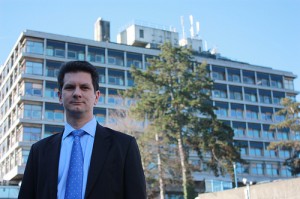
Chiltern Clinical Commissioning Group public meeting Thursday, 21st November at 6.30pm at Hamilton School, Hampden Road, High Wycombe, HP13 6SX
The NHS is built on the concept of quality care for patients, free at the point of use, paid for through taxation. Medical advances and increased patient numbers now mean these principles are under increasing pressure. Although the Government has increased NHS funding by 1% a year patients, quite rightly, also have rising expectations.
This is why NHS England is asking the public and NHS staff to have an open and honest debate about the future of the NHS. The document The NHS belongs to the people: a call to action sets out the challenges facing the NHS. Sir David Nicholson, Chief Executive of NHS England said recently:
The NHS was set up to provide high quality care for patients, free at the point of need. The NHS has stayed true to this aim and to do so in the future, we must embrace new ways of working. The NHS, like every other healthcare provider in the world, is facing these challenges. Too often, the answers are to reduce the offer to patients or charge for services. That is not the ethos of the NHS and I am clear that our future must be about changing, not charging. To do so we must make bold, clinically-led changes to how NHS services are delivered over the next couple of years.
The focus needs to shift from buildings and onto patients and services. The NHS was 65 years old last week and throughout its history our services, staff and treatment has evolved as medicine, technology and evidence has changed. Our success in extending life means people living longer, but with more conditions and illnesses such as dementia that were not common twenty years ago. New technology means earlier diagnosis and better treatment, but this costs more and we are not reaching everyone we need to. The NHS can increasingly deliver care at home, yet too often patients have to travel are around buildings.
We are facing demands, opportunities and investment unimaginable when the NHS was created in 1948. New data is available now to highlight where we get it right – and as importantly, where we get it wrong. We are setting all this out today – including the funding gap – to encourage the public and doctors and politicians to have an honest and realistic debate about how they want their local NHS to be shaped. With the new independence of NHS England and the establishment of GP-led commissioners, we can find local answers to meet these challenges .
Our analysis shows that if we continue with the current model of care and expected funding levels, we could have a funding gap of £30bn between 2013/14 and 2020/21,which will continue to grow and grow quickly if action isn’t taken. This is on top of the £20bn of efficiency savings already being met. This gap cannot be solved from the public purse but by freeing up NHS services and staff from old style practices and buildings.
It is clear that the NHS establishment plans significant change to the way healthcare is provided over the next few years. Almost every constituent who talks to me about health wants good treatment close to home.
I urge people to make their views known at the public meeting being held on Thursday, 21st November at 6.30pm at Hamilton School, Hampden Road, High Wycombe, HP13 6SX.
I have no expectation that the “commissioning group[s]” will take any notice of any views that differ from their own self-interest weighted approach.
Their record on this speak for itself.
I welcome Steve Baker’s idea for customer/user commissioning groups to be the way forward for redesigning and rebuilding the NHS from the ground up.
A good start would be to redefine the relationship between users and medical staff – the antiquated terms “doctor” and “patient” are obscure, meaningless and help only to promote a very one-sided relationship between customers and medical practitioners.
The cost of failure will be the demise of the NHS – perhaps not such a bad thing given its current abysmal performance levels.